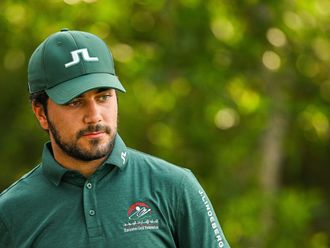
London: The President of the International Olympic Committee (IOC), Jacques Rogge, has reiterated his pledge to root out the menace of doping in sports.
Addressing media at the end of the IOC executive meeting late yesterday, Rogge promised he would do everything to ensure the invalid ‘Osaka Rule’ is repealed in such a manner that it becomes more definitive in the interests of sport.
The IOC in June 2008 established the so-called Osaka Rule, or Rule 45, which banned athletes who had served a suspension of more than six months from the following Olympic Games.
But last October, the international Court of Arbitration for Sport (CAS) said such a measure was “invalid and unenforceable”.
“We were disappointed when the CAS declared the Osaka Rule invalid. We respect this decision, and now we are going along with WADA [World Anti-Doping Authority] to replace this rule with different wording so that it has more bite,” Rogge told world media before the start of the London Games.
Case of Dwain Chambers
The lapse in the rule has led to several drug-tainted athletes making their way back into the sport. The most prominent one was when British sprinter Dwain Chambers, who was cleared to compete in London recently.
The 100 metres sprinter was handed a lifetime Olympic ban in 2003 for taking the banned performance-enhancing drug, THG.
The 2004 Athens Olympics produced 26 cases of doping — the highest number at any Games, with six medallists, including two gold winners, getting caught.
This number could rise further as the IOC Medical Commission is still investigating up to five suspected positive results uncovered in recent re-testing of Athens samples. “There is an issue indeed with a certain number of athletes. We need to keep the B sample confidentiality until the tests are done and the results are out. And as per rules of the IOC, I am not entitled to give an answer until the B sample is tested,” Rogge said.
In the 2008 Beijing Games, there were 14 positive tests of which the most imposing one was that of Rashid Ramzi of Bahrain, who was stripped of his 1,500m gold medal.
Framing an impregnable rule
Ever since the ‘Osaka Rule’ was made invalid, the IOC led by Rogge has been in the process of framing a fresh rule that will be impregnable for drug cheats in sports. And, with the IOC chief likely to preside over the body until September 2013, it is very likely that the world governing body will seek an amendment to the World Anti-Doping Code (WADC) when it comes up for review next year.
There have been conflicting views over the ‘Osaka Rule’. The IOC wants it to act as a further deterrent for doping cheats, while critics are of the opinion that athletes were being punished twice, once through the ban imposed and then by missing an Olympics.
“Expect this rule to be more effective by November 2013,” Rogge promised. “Of course, the athletes have the right to compete and we respect that, and if the court decides on this rule, then we have to obey,” he added.












